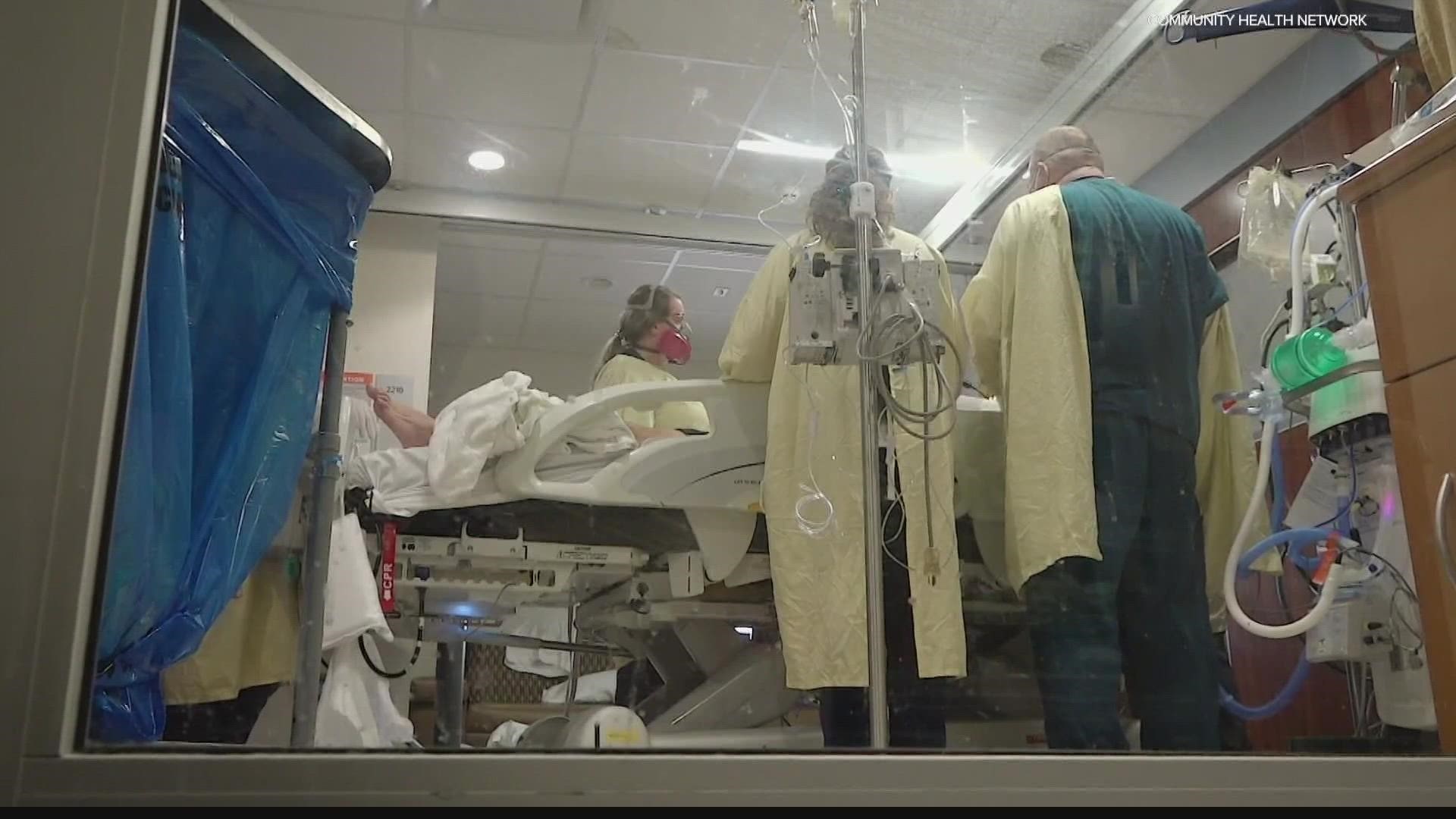INDIANAPOLIS — We're taking a closer look at COVID-19 in Indiana and how it's putting hospitals in a dangerous spot.
Statewide, inpatient beds are filling up at a level higher than at any time during the pandemic, and beds for COVID-19 patients represent a big chunk.
Hospitalizations have doubled in just a month, further stressing a system that has been stressed for over a year.
We've seen hospitals under serious strain at times throughout the pandemic.
"Our staff is and our facilities are stressed and exhausted," said Dr. James Bien, IU Health Arnett's chief medical officer.
All across the state, doctors and nurses say we're nearing the breaking point.
"They say things are as bad or worse than they were during the peak last winter," said Micah Pollak associate professor of economics at IU Northwest. "The very real threat of our health care system collapsing or struggling tremendously is probably even more of an immediate concern than the arrival of the new variant."
The problem? New cases are surging. Indiana's positivity rate is at its highest since January. Hospitalizations have doubled in just a month.
And perhaps most worrisome, 70 percent of the state's staffed inpatient hospital beds are full, the highest it's been since the pandemic began.
And unlike last winter's spike, many health care systems have fewer workers because of burnout.
"A lot are on diversion," Pollak said. "A lot of nurses and doctors are working extra long shifts a lot more, and we're really risking burning them out even further as we go into this next wave here."
Vaccinations, boosters and even hosting smaller holiday gatherings are among the things experts say will prevent the crisis from getting worse.
"When the pandemic started, we talked about flattening the wave in order to save the health care system and I think we're back in that situation again," said Pollak.
What other people are reading:
- 1 dead, 5 injured in series of double shootings in Indianapolis
- Hoosier making history in wine industry
- Northern Indiana foster family of 4-year-old killed after reunion with birth parents demand answers
- Suspect 'appeared calm' | Oxford High School releases their account of deadly shooting
- US extends mask mandate for travelers; stricter testing guidelines begin for flights into US
- Houston boy meets California man who saved his life
- Renewed state-by-state abortion fight in the works
- Non-toy gift ideas from the Queen of Free

